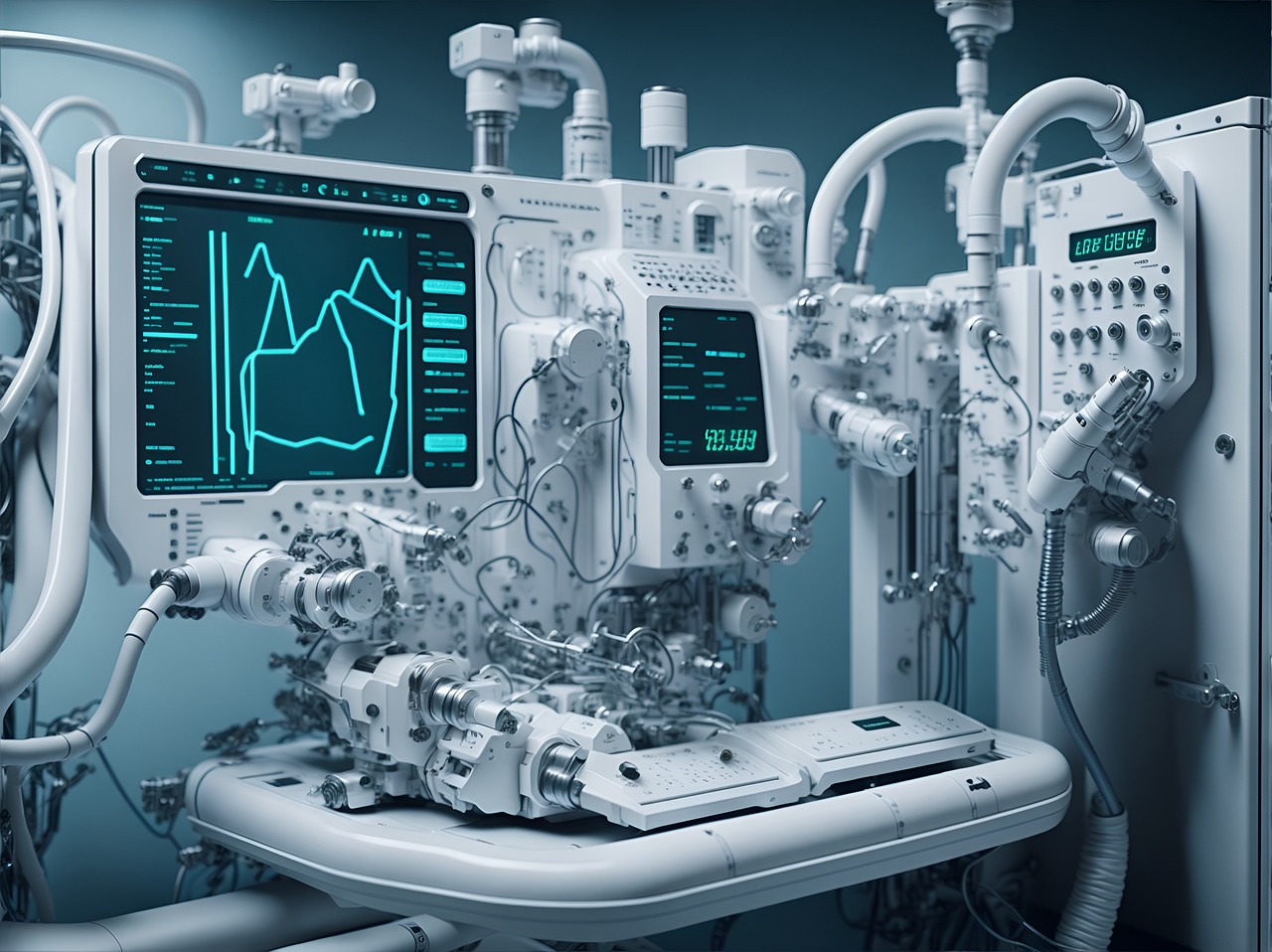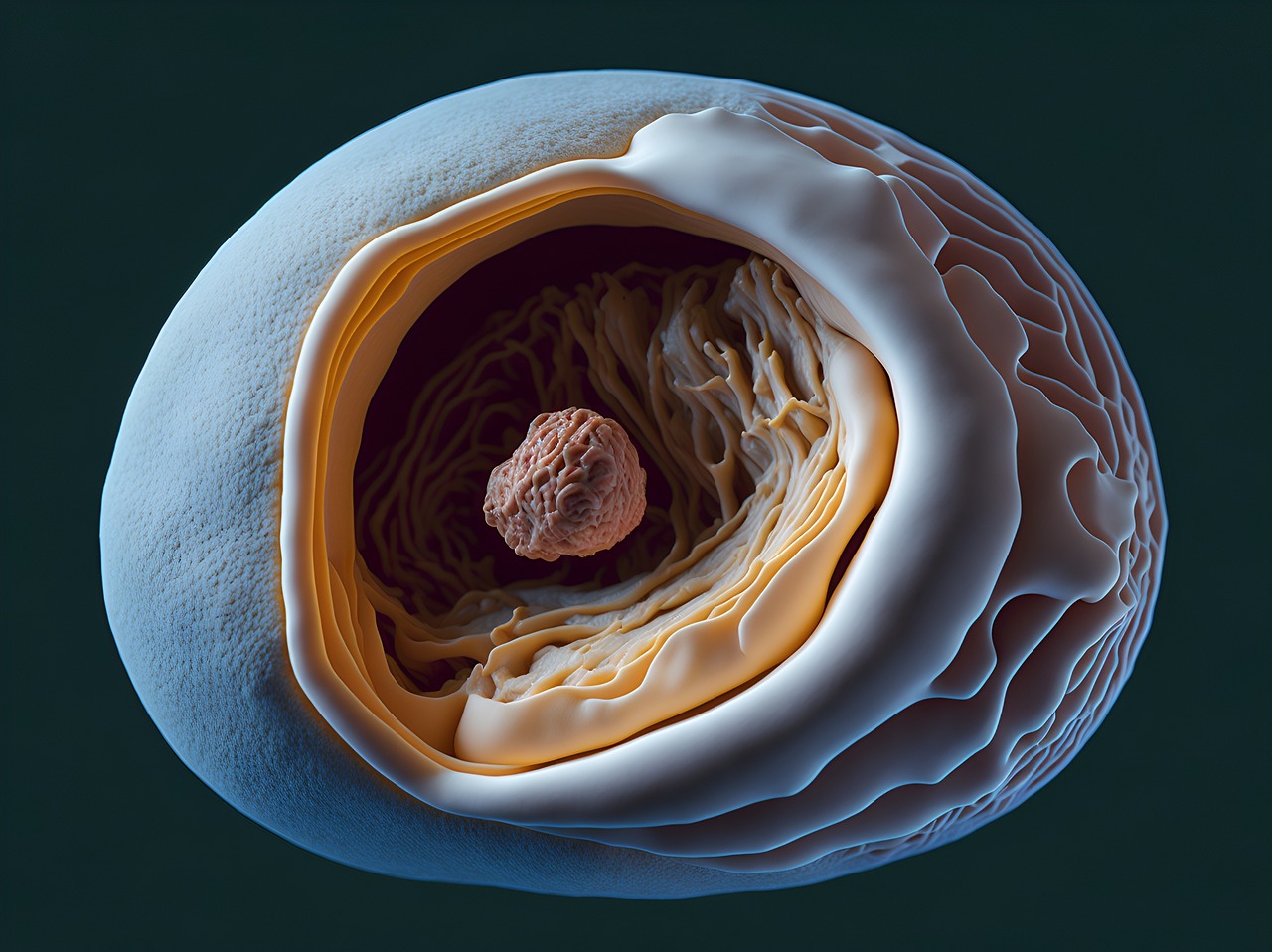In today’s rapidly evolving world, the incorporation of Artificial Intelligence (AI) has become increasingly prevalent across various industries, including healthcare and medicine. With its advanced algorithms and machine learning capabilities, AI is revolutionizing the way healthcare professionals diagnose, treat, and manage patients. This transformative technology provides healthcare practitioners with the ability to analyze vast amounts of patient data, improve accuracy in medical imaging, and even assist in predicting disease outcomes. AI’s impact on the field of healthcare and medicine is already evident, and its potential for further advancements is truly promising.

Understanding AI in Healthcare
Artificial Intelligence (AI) refers to the ability of computer systems to perform tasks that usually require human intelligence. In the field of healthcare, AI has emerged as a powerful tool to revolutionize the way we diagnose, treat, and manage diseases. By leveraging cutting-edge technologies such as machine learning and natural language processing, AI has the potential to greatly enhance healthcare delivery and improve patient outcomes. However, before we delve into the various applications of AI in healthcare, let’s first define what AI actually means in this context.
Definition of AI
AI in healthcare refers to the use of computer algorithms and software to analyze complex medical data, interpret patterns, and provide valuable insights and recommendations to healthcare professionals. This includes tasks such as disease diagnosis, drug discovery, patient monitoring, and even surgical procedures. AI systems are designed to continuously learn from new data and adapt their algorithms to make more accurate predictions and deliver better healthcare solutions.
Brief History of AI in Healthcare
The application of AI in healthcare can be traced back to the 1970s when researchers began exploring computer-assisted diagnosis systems. Over the years, advancements in computing power and access to vast amounts of medical data have accelerated the development and adoption of AI in healthcare. Today, AI is being used in various domains of healthcare, driving advancements in disease diagnosis, patient care, pharmaceutical research, medical imaging, and telemedicine.
Applications of AI in Healthcare
The applications of AI in healthcare are vast and diverse, with each contributing to different aspects of healthcare delivery. Some key areas where AI is making a significant impact include disease diagnosis, patient care, pharmaceutical research, medical imaging, and telemedicine. Let’s explore each of these applications in detail.
Disease Diagnosis
One of the most promising applications of AI in healthcare is in disease diagnosis. AI algorithms are trained on vast datasets comprising medical records, lab results, genetic data, and imaging scans to accurately identify patterns and predict diseases. By analyzing large volumes of data, AI systems can quickly and accurately diagnose a wide range of diseases, including rare and complex conditions.
Patient Care
AI is also transforming the way patient care is delivered. By leveraging AI algorithms, healthcare providers can develop personalized treatment plans for patients based on their individual characteristics, medical history, and genetic data. AI-powered systems can analyze a patient’s data in real-time, predict potential health risks, and suggest preventive measures. Furthermore, AI can assist in surgical procedures by providing real-time guidance and enhancing precision.
Pharmaceutical Research
In the realm of pharmaceutical research, AI is revolutionizing the drug discovery process. With the help of AI algorithms, researchers can analyze vast databases of chemical compounds and predict their effectiveness in treating specific diseases. This significantly accelerates the drug discovery process and reduces costs associated with traditional trial and error methods. AI also plays a crucial role in optimizing clinical trials, ensuring that the right patient population is targeted and increasing the chances of success.
Medical Imaging
Medical imaging is another area where AI is making remarkable strides. By analyzing radiographic images, AI algorithms can identify anomalies, assist radiologists in making more accurate diagnoses, and even predict treatment outcomes. AI is also being used in pathology to analyze tissue samples, identify cancerous cells, and provide more precise diagnoses. The future of AI in medical imaging holds great promise, with the potential to improve diagnostic accuracy, reduce human error, and enhance patient care.
Telemedicine
Telemedicine, which involves remote diagnosis and treatment of patients, has gained significant momentum with the advent of AI. AI-powered chatbots and virtual assistants enable patients to seek medical advice and receive preliminary diagnoses without physically visiting a healthcare facility. Additionally, AI algorithms can continuously monitor patients remotely, alerting healthcare providers of any anomalies and enabling timely interventions.
AI in Disease Diagnosis
Use of AI in Disease Prediction
The integration of AI in disease prediction has the potential to revolutionize healthcare. By analyzing vast amounts of patient data, AI algorithms can detect patterns and predict the likelihood of individuals developing certain diseases. For example, AI has shown promise in predicting the onset of conditions such as diabetes, cardiovascular diseases, and certain types of cancer. This early prediction allows healthcare professionals to intervene proactively, potentially preventing or mitigating the impact of these diseases.
Success Stories of AI in Disease Diagnosis
AI has already demonstrated remarkable success in disease diagnosis across various medical specialties. In dermatology, for instance, AI algorithms have shown accuracy comparable to dermatologists in detecting skin cancers and other skin diseases based on images. In ophthalmology, AI can analyze retinal images and identify signs of diabetic retinopathy, a leading cause of blindness. These success stories highlight the potential of AI to augment healthcare professionals’ abilities and improve patient outcomes.
Challenges in AI for Disease Diagnosis
While AI has shown great promise in disease diagnosis, it is not without its challenges. One of the major hurdles is the lack of high-quality, diverse, and labeled medical datasets. AI algorithms rely on large amounts of data to accurately learn and make predictions. Moreover, concerns about privacy and security arise when sharing sensitive patient data for training AI models. Additionally, there is a need for clear guidelines and regulations to ensure the safe and responsible use of AI in disease diagnosis.
AI in Patient Care
AI in Personalized Medicine
Personalized medicine aims to deliver tailored treatments based on an individual’s genetic makeup, lifestyle, and other factors. AI plays a crucial role in enabling the implementation of personalized medicine by analyzing vast amounts of patient data and identifying patterns that can inform treatment decisions. By integrating AI into patient care, healthcare providers can deliver more precise and effective treatments that are better aligned with individual patient needs.
AI in Surgical Procedures
AI has the potential to greatly enhance surgical procedures. Robotic-assisted surgery, for instance, combines the precision of robots with the expertise of surgeons, leading to more accurate and minimally invasive procedures. AI algorithms can analyze real-time data during surgery, assisting surgeons in making critical decisions and optimizing outcomes. By integrating AI into surgical procedures, the chances of complications can be reduced, patient recovery can be improved, and surgical precision can be enhanced.
Use of AI in Monitoring Patient’s Health
AI-powered systems can continuously monitor patient health, providing timely alerts and recommendations to healthcare providers. By analyzing real-time data from wearable devices, electronic health records, and other sources, AI algorithms can detect early signs of deterioration, allowing for early interventions and preventing potential complications. AI monitoring systems can also track medication adherence, alerting patients and healthcare providers when medications are missed or require adjustment.

AI in Pharmaceutical Research
Role of AI in Drug Discovery
AI is transforming the drug discovery process, which traditionally involved years of trial and error. By leveraging AI algorithms, researchers can analyze vast libraries of chemical compounds and predict their potential effectiveness in treating specific diseases. This significantly speeds up the discovery of new drug candidates and reduces the associated costs. AI can also optimize drug repurposing efforts, identifying existing drugs that may have the potential to be repurposed for different indications.
Impact of AI in Clinical Trials
Clinical trials are a critical component of the drug development process, but they are often lengthy, expensive, and prone to high failure rates. AI has the potential to optimize clinical trials by identifying the right patient population and reducing the time required for recruitment. Additionally, AI algorithms can analyze real-time data from clinical trials, enabling researchers to make data-driven decisions and adapt the trial protocols as needed. This enhances the efficiency of clinical trials and increases the chances of successful outcomes.
AI in Developing Personalized Treatments
AI plays a key role in developing personalized treatments by analyzing vast amounts of patient data, including genetic information, medical history, and treatment outcomes. By identifying patterns and correlations, AI algorithms can provide insights that enable healthcare providers to tailor treatments according to individual patient characteristics. This personalized approach has the potential to improve treatment efficacy, minimize adverse effects, and enhance patient satisfaction.
AI in Medical Imaging
AI in Radiology
Radiology is an area of healthcare where AI is making significant advancements. AI algorithms can analyze medical images such as X-rays, CT scans, and MRIs to identify abnormalities, assist radiologists in making more accurate diagnoses, and even predict treatment outcomes. This has the potential to greatly enhance the speed and accuracy of radiological interpretations, leading to improved patient care and outcomes. However, challenges such as standardization of imaging protocols and integration of AI into existing workflows need to be overcome for widespread adoption.
AI in Pathology
In pathology, AI is transforming the way tissue samples are analyzed and diagnosed. By analyzing high-resolution images of tissue slides, AI algorithms can accurately detect cancerous cells, identify specific tumor subtypes, and predict patient outcomes. This has the potential to reduce diagnostic errors, enhance efficiency, and improve treatment planning. However, ensuring the accuracy and reliability of AI algorithms in pathology remains a challenge, as the interpretation of histopathological slides can be subjective.
Future of AI in Medical Imaging
The future of AI in medical imaging holds great promise. Advancements in deep learning algorithms and the availability of large annotated datasets have the potential to significantly improve the accuracy and efficiency of image analysis. AI has the potential to automate routine image interpretation tasks, allowing radiologists and pathologists to focus on more complex cases. Additionally, the integration of AI with emerging imaging technologies such as molecular imaging and real-time imaging could lead to even more accurate and personalized diagnoses.

AI in Telemedicine
AI in Remote Patient Monitoring
Remote patient monitoring is an area of telemedicine that benefits greatly from AI. By continuously monitoring vital signs, symptoms, and other health parameters, AI algorithms can detect anomalies and alert healthcare providers of potential issues. This enables early interventions and reduces the need for hospital visits. AI-powered remote patient monitoring also allows for timely adjustments to treatment plans, improving patient outcomes and reducing healthcare costs.
AI in Virtual Healthcare
Virtual healthcare, also known as telehealth, involves delivering healthcare services remotely through digital communication platforms. AI plays a pivotal role in virtual healthcare by providing automated triage, symptom checker tools, and virtual assistants that can answer patient questions and provide general medical advice. This enhances access to healthcare services, particularly in remote or underserved areas, and reduces the burden on healthcare professionals.
Challenges in Applying AI in Telemedicine
Despite the immense potential of AI in telemedicine, there are several challenges that need to be addressed. One major challenge is ensuring the security and privacy of patient data when transmitting it over digital platforms. Additionally, regulatory frameworks need to be established to ensure the safe and ethical use of AI in telemedicine. Furthermore, the digital divide and lack of access to robust internet connectivity can hinder the widespread adoption of AI-powered telemedicine solutions.
Ethical Considerations of AI in Healthcare
Patient Data Privacy
As AI relies on vast amounts of patient data to make accurate predictions and recommendations, ensuring patient data privacy is a paramount concern. Healthcare organizations must implement robust security measures to protect patient data from unauthorized access, breaches, and misuse. Transparency and clear consent mechanisms are essential in obtaining patient consent for the use of their data in AI-powered healthcare systems.
AI Decision-making Transparency
It is crucial that AI algorithms used in healthcare are transparent in their decision-making process. The underlying mechanisms and factors influencing AI recommendations should be understandable and explainable to healthcare professionals and patients. This fosters trust in AI systems and enables healthcare professionals to confidently utilize AI recommendations in their decision-making process.
Responsibility and Accountability
As AI becomes increasingly integrated into healthcare, it is important to establish clear lines of responsibility and accountability. Healthcare providers and AI developers must work together to ensure that AI systems are accurate, reliable, and safe to use. The ethical and legal ramifications of AI decisions should also be carefully considered to protect patients and healthcare professionals alike.

The Future of AI in Healthcare
Emerging Trends of AI in Healthcare
The future of AI in healthcare is filled with exciting possibilities. Some emerging trends include the use of AI-powered robotics for complex surgeries, the development of personalized treatment plans based on genomic data, and the integration of AI with wearable devices for continuous monitoring of patient health. The advancements in AI algorithms, combined with increased access to data and improved computing power, will drive further innovation and transformation in healthcare.
Limitations and Challenges for AI in Healthcare
While the potential for AI in healthcare is immense, there are still limitations and challenges to overcome. AI algorithms heavily rely on the quality and diversity of the data they are trained on. Therefore, access to high-quality, labeled, and diverse datasets is essential for the accurate and reliable performance of AI systems. Moreover, ensuring the ethical and responsible deployment of AI, addressing biases, and maintaining patient trust are ongoing challenges.
Potential Solutions and Innovations
To address the limitations and challenges of AI in healthcare, collaboration between healthcare professionals, AI researchers, and regulatory bodies is crucial. There is a need for standardized protocols for collecting and sharing medical data, ensuring its quality and privacy. Furthermore, ongoing research and development in AI algorithms can lead to more robust and explainable models. Innovations such as federated learning, which allows AI models to be trained on decentralized data sources, have the potential to mitigate data privacy concerns while improving AI performance.
The Economic Impact of AI in Healthcare
Potential Cost Savings from AI
AI has the potential to generate significant cost savings in healthcare. By streamlining administrative tasks, automating routine processes, and reducing medical errors, AI can lead to increased efficiency and productivity, resulting in reduced healthcare costs. Moreover, early disease prediction and intervention facilitated by AI can potentially prevent costly complications and hospitalizations, further reducing healthcare expenditure.
Investment Trends in AI Healthcare Startups
The potential of AI in healthcare has attracted significant investment from both private and public sectors. AI healthcare startups are emerging and attracting funding to develop innovative solutions that address various healthcare challenges. Investments are being made in AI-powered diagnostics, remote patient monitoring, personalized medicine, and drug discovery. This influx of capital and resources is driving innovation and propelling the growth of AI in healthcare.
Economic Challenges of Implementing AI
While AI has the potential to generate cost savings, there are economic challenges associated with its implementation. The upfront costs of acquiring and maintaining AI technology can be significant, particularly for resource-limited healthcare organizations. Furthermore, there is a need for specialized training and upskilling of healthcare professionals to effectively utilize AI systems. Achieving a balance between the costs and benefits of implementing AI in healthcare requires careful planning, investment, and a focus on long-term sustainability.
In conclusion, AI is rapidly transforming the field of healthcare and medicine. From disease diagnosis to patient care, pharmaceutical research, medical imaging, and telemedicine, AI is revolutionizing the way healthcare is delivered. However, ethical considerations, responsible deployment, and addressing limitations and challenges are crucial for the successful integration of AI into healthcare practices. With ongoing advancements and collaborations, the future of AI in healthcare is promising, offering the potential for improved patient outcomes, increased efficiency, and cost savings.











